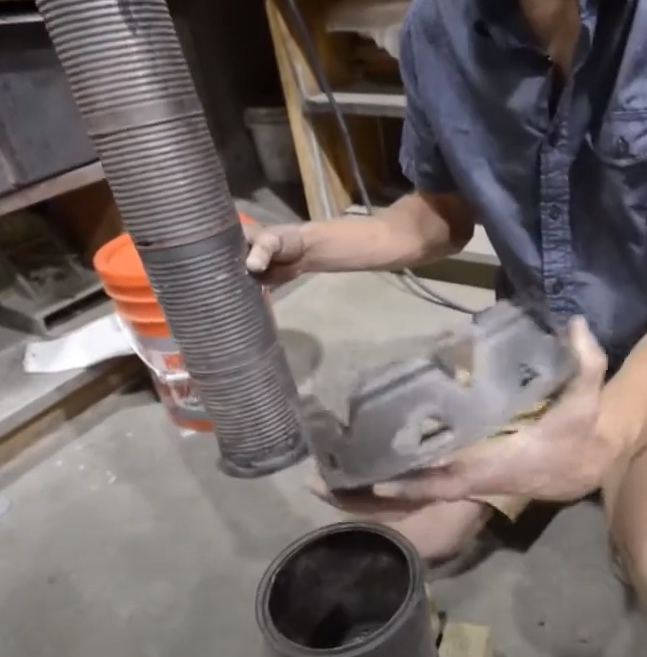Edge Collective
19
Airway; Bolton standards for craniofacial development; biochar; THMsBaby teeth crowding
Airway Health Solutions
https://www.youtube.com/watch?v=S34FGlSyK8I -- Dr. Bogue's research
https://www.airwayhealthsolutions.com/
Great collection of videos here:
https://www.airwayhealthsolutions.com/chats
Great video on airway expansion:
The Bolton Standards for craniofacial development -- templates you can overlay
https://drscottsolomons.com/blog/2022/4/25/facial-development-and-the-bolton-tracings
Timestamp where it looks like Coleman: https://www.youtube.com/watch?v=8tsVh0V7ZM0&t=823s
Sodium-cooled reactors
https://energyskeptic.com/2023/bill-gates-gen-iv-sodium-cooled-fast-reactor-sfr-in-wyoming/
Myofunctional questions
- palate expansion -- mechanics of that
- Bolton standards / template
- tongue release process
- timeline / urgency
Projects up north
- Washington Academy
- East Macchias High
- arduino and biochar
- analysis / water testing / local engagement
- build a 2000 liter per day system
- start doing some workshops at Smithereen about biochar & water anyway
Water issues in Sipayik
trihalomethanes
William Longfellow
Corey Hinton https://dwmlaw.com/profile/michael-corey-f-hinton/
Rena Newell
Wabanaki Public Health
Mary Daigle
Biochar production
Main collection of videos:
https://www.aqsolutions.org/charcoal-biochar-water-treatment/
Water Filter Guru https://www.youtube.com/watch?v=AVZmZwTxnMc
"Simple Labs" -- testing water
Kearns on biochar gasifier: https://vimeo.com/38501679
- gasifier charcoal more effective at filtering water than kiln charcoals
Benefits of gasifier:
- more complete production
- relatively low emissions
- use the fuel as the charcoal source
- no need for external energy source
design of gasifier: Top-lit up-draft -- TLUD --
Bamboo char is a good option
Size of fuel is important -- too fine, will block holes
Difference in mass in and mass out is a good indicator of sufficient processing -- 85% mass loss is a good target
750 to 950 celcius range is good for water filtration biochar
Very similar approach to making biochar with a gasifier: https://www.youtube.com/watch?v=PBfij8SM02U
Jon Jandai -- Two-drum biochar design: https://www.youtube.com/watch?v=7nwa6wAYFeU
Simple TLUD biochar maker -- https://www.youtube.com/watch?v=YIbGkmt1VdE&list=PLy9hFdI8EDMmQDvG_bqHQcc2nkr2INqf8
- Roof sheeting to make chimney
Biochar TED presentation by Wae Nelson https://www.youtube.com/watch?v=p0YNFn9Dloc
Making biochar with a gasifier -- home depot steel bins -- https://www.youtube.com/watch?v=I7kA13Vcgj4
Biochar -- TED -- Rob Lerner -- putting the carbon genie back in the bottle https://www.youtube.com/watch?v=SgwwV6YrWb0
Biochar -- future of sustainable agriculture -- Lauren Hale at TED https://www.youtube.com/watch?v=AKBkgJoaIxQ
TED talks on biochar https://ucanr.edu/blogs/blogcore/postdetail.cfm?postnum=26243
The biochar blog https://ucanr.edu/blogs/biochar/index.cfm
Simple labs -- Disinfection byproducts https://mytapscore.com/blogs/tips-for-taps/disinfection-byproducts-the-adverse-effects-of-water-chlorination
Other than minimizing and monitoring chlorine and humic acid concentrations, there is essentially no foreseeable way of removing THMs at the water treatment plant. Water system engineers want there to be a chlorine residual (often referred to as “the residual”) in your distribution pipes because this keeps your water safe from potentially harmful bacteria and viruses as it travels through the distribution system to your home.
Unfortunately, it is this excess chlorine that reacts with organic matter present in your pipes to create THMs. Ultimately, this decision to chlorinate versus have no THMs is a tradeoff between safety from microbes and safety from THMs.
Because there are so many different treatment products on the market, it is difficult to give a blanket statement about removal of THMs with home treatment products. In general, the easiest way to reduce THM’s in your tap water is to consider buying a National Science Foundation certified carbon filter for your drinking water at home; ensure that it is certified specifically under the NSF/ANSI Standard 53 Certification for THMs. Point-of-entry systems are recommended in order to protect you both from ingesting THMs as well as inhaling them, for example while doing the dishes or showering.
Relevant test from Simple Labs -- VOC Water Test -- $140 -- https://mytapscore.com/products/volatile-organic-compounds-water-test
Kon Tiki biochar production https://www.youtube.com/watch?v=1o0QqePtNM4
Suggestion not to grind biochar into a fine powder https://www.youtube.com/watch?v=9boXHuzMFsA
Josh Kearns, small gasifier & water filtration https://www.youtube.com/watch?v=o1Op6nnO9H4

Relevant paint cans on Amazon for $12
Similar design for gasifier from paint can https://www.youtube.com/watch?v=vzc1r3EfNSg
Follow the above design for a test
US Biochar initiative https://twitter.com/USBiochar
Collecting total THM sample https://www.youtube.com/watch?v=1Qv5BbPKnQw
Standards for THMs in water https://www.ncbi.nlm.nih.gov/pmc/articles/PMC6985399/
Josh Kearns -- Small scale study of biochar -- very small column
Josh Kearns presentation, TTHM
Academic presentation:
Slides:
http://www.aqsolutions.org/images/2016/10/Kearns-UNC-2016.pdf
Biomass
The return of biomass https://www.youtube.com/watch?v=Ps6Rn-i9t1Y
Solar still
Post Carbon Institute Fellows
Cindy Parker https://www.postcarbon.org/our-people/cindy-parker/
https://www.postcarbon.org/public-health-and-medicine-in-an-age-of-energy-scarcity/
Stephanie Mills https://www.postcarbon.org/our-people/stephanie-mills/
Tue Oct 10 08:29:02 PM EDT 2023
D-Lab projects
Dan Sweeney -- https://d-lab.mit.edu/about/people/daniel-sweeney
Cooling chamber -- https://www.cooling-chamber.mit.edu/
Article on D-Lab Evaporative cooling https://d-lab.mit.edu/news-blog/news/addressing-food-insecurity-arid-regions-open-source-evaporative-cooling-chamber
Article on clay pots https://d-lab.mit.edu/research/evaporative-cooling-vegetable-preservation/clay-pot-coolers
Article on charcoal cooler, engineering for change https://www.engineeringforchange.org/solutions/product/charcoal-cooler/
What about biogas?
What about compressed air?
Tue Oct 10 10:05:13 PM EDT 2023
EPA method for TTHM -- https://archive.epa.gov/region1/info/testmethods/web/pdf/501_3.pdf
"A New Method for the Fast Analysis of Trihalomethanes in Tap and Recycled Waters Using Headspace Gas Chromatography with Micro-Electron Capture Detection" https://www.ncbi.nlm.nih.gov/pmc/articles/PMC5451978/
background on TTHMs https://caslab.com/News/testing-for-trihalomethanes-in-your-water-tthm.html
removing tthms with activated carbon https://wcponline.com/2006/06/27/trihalomethane-removal-activated-carbon/
When designing systems with water that has been previously chlorinated, GAC is used to remove the TTHMs directly. One method employed to determine how long GAC will last removing TTHMs is to perform a carbon isotherm test on the specific water. Exact details on how to perform the test are available in ASTM International test method D 5919, Determination of Adsorptive Capacity of Activated Carbon by a Micro-Isotherm Technique for Adsorbates at ppb Concentrations. The test results are plotted according to the empirical Freundlich equation. As shown in Figure 2, the residual concentration of the THM in solution is plotted on the x axis and the amount of THM adsorbed per unit weight of activated carbon is plotted on the y axis.
Relevant carbon isotherm test https://www.jstor.org/stable/25042618
Test methods for activated carbon https://activatedcarbon.org/images/Test_method_for_Activated_Carbon_86.pdf
https://nepis.epa.gov/Exe/ZyPURL.cgi?Dockey=2000CIAZ.TXT
Really nice documented on activated carbon:
https://www.awwa.org/portals/0/files/publications/documents/samples/activatedcarbonchap1.pdf
Tue Oct 10 10:13:07 PM EDT 2023
CO2 monitor https://hackaday.com/2023/10/10/pocket-co2-sensor-doubles-as-smd-proving-ground/
based on original post: https://bitbanksoftware.blogspot.com/2023/04/building-pocket-co2-project.html